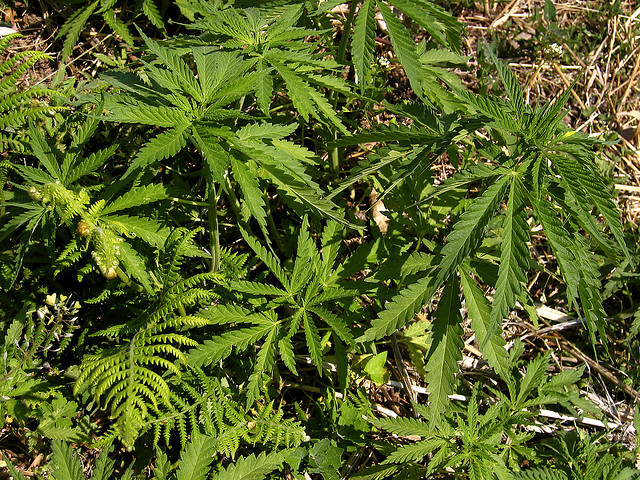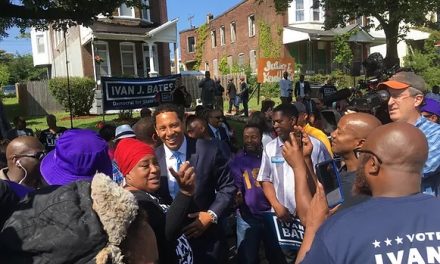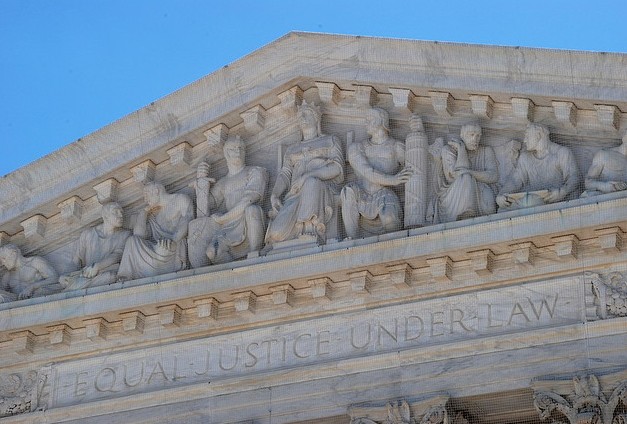By ABBY ZIMMARDI
BALTIMORE — Question four on the Maryland ballot passed easily, which means Marylanders 21 years and older can expect to legally use, carry and grow recreational marijuana beginning July 1, 2023.
The Associated Press called the contest with 65.4% for and 34.6% against with about 38% of the vote counted. Maryland became the 20th state in the nation to legalize recreational cannabis. The state legalized medical marijuana in 2014.
Within the measure, there are provisions explaining what is legal when the law is enacted. The provisions come from the Cannabis Reform Act (HB837), passed in April during the 2022 General Assembly.
The provisions include:
-
Legalization of cannabis up to 1.5 ounces.
-
A civil fine for possession of 1.5 to 2.5 ounces of cannabis. Currently, possession of up to 10 grams of marijuana does not result in arrest, jail time, or a criminal record. Instead, possession of small amounts results in civil penalties.
-
The release of any person in jail or a detention center solely for possession of cannabis on Jan. 1.
-
Automatic expungement of previous convictions for possessions of cannabis.
-
Limit of two cannabis plants per person.
-
Prohibition of smoking cannabis, which is subject to the Clean Air Act, indoors and outside in public areas.
-
A focus on keeping cannabis out of the hands of children.
Del. Luke Clippinger, D-Baltimore City, chair of the House Judiciary Committee, sponsored the legislation. Its provisions were contingent on voters passing the ballot measure.
“What we’re doing is responsible and we’re seeking to take the profit out of this for people who use violence to sell the substance,” Clippinger said in an interview with Capital News Service.
In 2014, Maryland Gov. Martin O’Malley, D, signed a bill that decriminalized possession of marijuana. Instead of jail time, people who are caught with up to 10 grams of cannabis would receive a $100 civil fine for the first offense. A criminal offense would be an individual caught with more than 10 grams, resulting in jail time.
In 2017, three years after medical marijuana was legalized, the first medical marijuana dispensaries opened under the Maryland Medical Cannabis Commission. In the 2021 fiscal year, dispensary sales reached more than $500 million. So far this year, there have been more than $424 million in dispensary sales.
Clippinger said the next steps in the legalization of recreational cannabis include licensing and the taxation structures. The state’s General Assembly will decide those issues during its 2023, 90-day legislative session, which begins in January, he said.
One way to understand how Maryland’s revenue might be impacted is to look at Massachusetts, a state of similar population where voters chose to legalize marijuana in the 2016 general election. A month after the vote, cannabis became legal for adults to possess and grow.
The state’s residents made their first purchases of recreational marijuana two years later at two licensed retail stores. Since then, there have been more than $3 billion in sales, according to the state’s Cannabis Control Commission.
In Massachusetts, recreational cannabis is taxed at 20%, with the state getting 17% and 3% going to municipalities, according to the Cannabis Control Commission.
Eugene Monroe is chair of the “Yes on 4” campaign that advocated for the legalization of recreational marijuana in Maryland.
“Voting ‘yes’ on four is really changing the destiny for people in the state of Maryland,” Monroe said. “It’s eliminating fear.”
Monroe, a former Baltimore Ravens offensive tackle, said the legalization of cannabis could generate job opportunities as well as second chances for thousands of people previously incarcerated for marijuana possession.
In 2020, 1,072 people were arrested for marijuana possession in Maryland, according to the FBI Crime Data Explorer.In 2021, 1,973 people were arrested. The change reflects an 84% increase in marijuana arrests from 2020-2021.
“We have to stop punishing adults for the simple possession of cannabis,” Monroe said. “Certainly, putting people in prison for a small amount for cannabis isn’t improving public safety by any means.”
With recreational cannabis legalized, Clippinger said cities may see benefits in terms of savings due to fewer arrests. He said there will probably not be a big difference on the state level.
Monroe said he sustained multiple injuries while in the National Football League, and took prescribed opioids to counter the pain and to heal. The opioids were doing more harm than good, he said, and he began to push for the NFL to change its restrictive policies on using cannabis, even for recognized medical therapy.
“We’ve seen legalization [of cannabis] change the tide in opioid related incidents as a result of the access to cannabis and the reduction of the need for opioid prescription,” he said.







Recent Comments